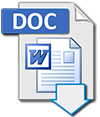Language Laboratory Management in Improving Students English Speaking Ability
DOI:
https://doi.org/10.29240/jsmp.v5i2.3663Keywords:
Management, Language Laboratory, English ProficiencyAbstract
Downloads
References
Akdon. (2011). Manajemen Pendidikan. CV. Pustaka Setia: Bandung, Cet, ke 2.
Arikunto, S. (2012). Penelitian Tindakan Kelas. Jakarta: Pt. Bumi Aksara.
Aulia, V. (2016). Language laboratory management to support technology-based foreign language instruction. JEELS (Journal of English Education and Linguistics Studies), 3(2).
Bahri, S. (1994). Prestasi Belajar & Kompetensi Guru. Surabaya: PT Usaha Nasional.
Bentham, S. (2005). A Teaching Assistant's Guide to Managing Behaviour in the Classroom. Routledge.
Buska, W., Latif, M., Risnita, R., Us, K. A., & Prihartini, Y. (2020). The Management of Language Laboratory in Improving Students Arabic Competence. Arabi: Journal of Arabic Studies, 5(1), 51-62.
Chaer, A. Leonie Agustina (2005). Sosiolinguistik Perkenalan Awal. Jakarta: PT. Rineka Cipta.
Danim, S. (2008). Media Komunikasi Pendidikan. Jakarta: Bumi Aksara.
Departemen Agama RI. (1971). Al-Qur’an dan Terjemahannya. Jakarta: Yayasan Penterjemah Al-Qur’an.
Fathurrochman, I. (2021). Online Evaluation System in the Pandemic Disruption in Madrasah: Opportunities and Challenges Based on Qualitative Report. Jurnal Iqra': Kajian Ilmu Pendidikan, 6(2), 184-197.
Fathurrochman, I., Danim, S., Anwar, A. S., & Kurniah, N. (2021, March). The School Principals’ Role in Education Management at the Regional Level: An Analysis of Educational Policy in the Industrial Revolution 4.0. In International Conference on Educational Sciences and Teacher Profession (ICETeP 2020) (pp. 237-242). Atlantis Press.
Fathurrochman, I., Endang, E., Bastian, D., Ameliya, M., & Suryani, A. (2021). Strategi Pemasaran Jasa Pendidikan Dalam Meningkatkan Nilai Jual Madrasah Aliyah Riyadus Sholihin Musirawas. Jurnal Isema: Islamic Educational Management, 6(1), 1-12.
Hafiz, K. D. (2013). An investigation into CALL in English language teaching through language laboratory. IOSR Journal of Humanities and Social Science (IOSR-JHSS), 6(6), 08-14.
Hamalik, O. (1995). Kurikulum dan Pembelajaran. Surabaya: CP Citra Media.
Harmer, J. (2007). How to teach english. Harlow. Harlow: Pearson Education.
Hasbullah. (1999). Dasar-dasar Ilmu Pendidikan. Jakarta: PT. Raja Grafindo Persada.
Hasibuan, MSP, (2012). Manajemen Sumber Daya Manusia. Edisi Revisi. Jakarta: PT. Bumi Aksara.
Izzan, A. (2007). Metodologi Pembelajaran Bahasa Arab. Bandung: Humaniora.
Malik, H., Humaira, M. A., Komari, A. N., Fathurrochman, I., & Jayanto, I. (2021). Identification of barriers and challenges to teaching English at an early age in Indonesia: an international publication analysis study. Linguistics and Culture Review, 5(1), 217-229.
Mukhtar. (2001). Sekolah Berprestasi. Jakarta: Nimas Multitama.
Mulyasa, E. (2012). Manajemen berbasis sekolah. PT. Remaja Rosda Karya Bandung, Fulcher, Glen. 2003. Speaking Ability. NewYork:
Perera, R.N.A.M. (2013). Problems Faced by Undergraduates in the Learning Environment.
Pranata, S. (2003). Laboratorium Bahasa Sebagai Media Pengajaran.
Qomar, M. (2009). Manajemen Pendidkan Islam Strategi Baru Pengelolaan Lembaga Pendidikan Islam. Jakarta: PT. Gelora Aksara Pratama.
Shah, S. Z. H., Fathurrochman, I., Ayub, A., Altamirano, G. C., Rizwan, A., Núñez, R. A. S., ... & Yeskindirova, M. (2021). Inclined magnetized and energy transportation aspect of infinite shear rate viscosity model of Carreau nanofluid with multiple features over wedge geometry. Heat Transfer.
Shu-hong, Y. A. N. (2011). Quality Construction of the Administrative Personnel of the Language Laboratory [J]. Experiment Science and Technology, 6.
Sobri, S. (1995). Belajar dan Pembelajaran. Bandung: Rosda Karya.
Somad, R., & Priansa, D. J. (2014). Manajemen Supervisi dan kepemimpinan kepala sekolah. Bandung: Alfabeta.
Sondang, PS. (2012). Fungsi-fungsi Manajerial. PT. Bumi Aksara: Jakarta, Cet, 3.
Stasiulis, E., Gladstone, B., Boydell, K., O'Brien, C., Pope, E., & Laxer, R. M. (2018). Children with facial morphoea managing everyday life: a qualitative study. British Journal of Dermatology, 179(2), 353-361.
Tayas, Y. (1995). Metodologi Pengajaran dan Bahasa Arab. Jakarta: Grafindo Persada.
Wahab, MA. (2008). Epistimologi dan Metodologi Pembajaran Bahasa Arab. Jakarta: UIN Jakarta Press.


















